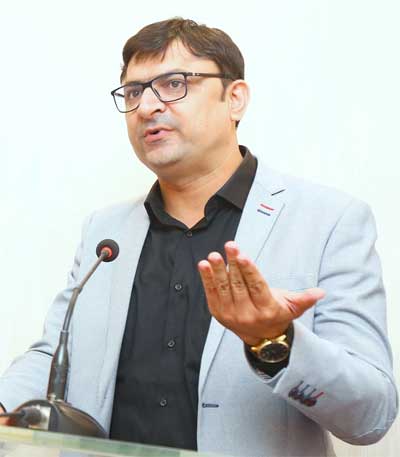Reshaping Pakistan-Japan relations
The year 2025 marks the 73 years of formal diplomatic relations between Pakistan and Japan. Pakistan recognized Japan early after the WW2 and signed a treaty of peace with Tokyo in 1952, making it a one of the first few Asian states to establish the diplomatic ties. Initially, the deferred payment system and barter trade took place between the both states. But, economic ties got strengthen by the bilateral visits, trade deals, and agreements between Tokyo and Islamabad. Since the independence, both states prioritized their strategic autonomy and economic interests as a tool of their foreign policy. However, unlike Pakistan, foreign policy of Japan was more of an international nature than domestic, making it a dominant economic power in Asia in 1980’s (Pax Nipponica).
In constant, excessive strategic focus of Pakistan was to engage in Afghanistan conflict based on the warm water theory. Internal Political Ping-pong, and lateral enforced engagement in War on Terror further stagnated its growth. In the entire process, the relations that were defined on the solid abstractions, molded from their original pathway. However, re-engagement with Japan particularly in the areas of common interests, can help Pakistan to strengthen its ties with Tokyo in the 21th Century. There are multiple choices for both states in this regard to address the areas of divergence for the mutual betterment.
There have been a role of China factor as a potential hindrance of cordial relations between Pakistan and Japan. However, if one looks analytically, the key components deriving Japan-China relations can be reduce to two main factors: Economic and Strategic. Economic cooperation and trading activities started between the both states at the time when no official relations were established. In the recent times, Abe and Xi had met multiple times to strengthen the trade relations. Late Abe even helped Xi in bargaining with the U.S.A. in economic affairs. The strategic issue, however, regarding that of Taiwan’s status, and the sovereignty of Japan’s territorial waters remained the key point of contestation between Japan and China.
But, recent shifts in the Trump’s attitude towards defense pact with Japan helped the Asian neighbors to adopt regionalism approach. It manifested itself in the form of trilateral summit between Japan, China, and South Korea. An ice-breaking event can further be capitalized. For instance, as it is evident from the Nixinger diplomacy, Pakistan can provide good offices and can act as a bridge between the both states to discuss security concerns. The potential Japanese investment in the Chinese led SEZs in Pakistan can also melt the ice further. In short, the effective use of its diplomacy and creating a win-win situation for both of the Asian economic giants, Pakistan can strengthen its ties with Japan in the near future.
During the Cold War, Pakistan and Japan indirectly cooperated in the traditional security matters under the U.S. led western bloc. As per the rules of pacifist clause in the article 9 of the Japanese constitution, Japan provided logistic and material support to Pakistan in all the major instances such as SEATO collaborations, and logistic support during Soviet invasion of Afghanistan. The warm relations continued after the cold war- due to similar threat perceptions. U.S. led War on Terror was the focal point of convergence of interests between the both states. However, 21th century has different issues and problems in the realm of security. As said by Barry Buzan, in his book ” People, States and Fears: An Agenda for International Security Studies in the Post Cold War era”, there is a dire need to reshape the socio-political and economic landscape as non-traditional security issues are the key components driving state affairs.
In that sphere, there is a wide range of areas where cooperation is possible. For instance, Japan and Pakistan both are vulnerable to natural calamities. Recent floods and earthquakes in Pakistan proved havoc for the overall national disaster management infrastructure. Islamabad and Tokyo can further strength their relations in that domain. Early warning systems, prevention before devastation mechanism, technological cooperation, post-disaster operational training, and other relevant areas can be identified. Improving and strengthening relations in that realm will restrain India to checkmate Pakistan as the cooperation is on the humanitarian grounds, hence, making it an irrelevant actor in the bilateral bargain between Tokyo and Islamabad. Other potential areas are water security, health, and food supply chain.
Joseph Nye in his book “Soft Power: The Means to Success in World Politics”, states that cultural diplomacy, along with other tools of soft power, can play an effective role in changing the public perception in the Westphalian State System. Having said that, Tokyo and Islamabad are working to strength the people-to-people ties under the cultural agreement of 1957. What Pakistan needs to do is the effective use of social media campaigns and reshuffling of its diplomacy on the modern lines. As Pakistan have a rich heritage of Gandhara civilization, promotion of tourism is possible via effective policies.
Moreover, awareness and spread of local cultures by the respective embassies, bi-annual cultural festivals, strong academic interactions, incorporating a chapter on Japan in the primary and secondary educational textbooks (similar to that of Chinese new year), Fully funded language courses in both states, and cultural exchange programs similar to that of UGRAD can help both states to embark on a new journey promising valuable returns in the medium and long run.
Additionally, MOUs for quotas in the respective educational institutes for the students of both states, inflow of Pakistani skilled workers in Japan, incorporation of Japanese technological experts in the mega projects, tax exemption for Japanese businesses, licensing Japanese and Pakistani dramas and film production houses in respective states to air shows in the native languages, and proper media coverage of the events involving the affairs of the both states can be a huge help.
Pakistan and Japan share a common post-colonial history. When Japan was given independence, its major industrial areas were devastated. Not only its economy got effected by WW2 but also the morale of the people was low. So was the case with Pakistan. Uneven distribution of wealth, unavailability of machinery and industry, partition trauma, and other similar kind of post-independence issues were similar to that of modern Japan. The point of argument is that apart from economic cooperation with Japan, Pakistan can also study and incorporate the Japanese model of development to rise as an economic power. Western models have proved ineffective time and again.
As said by Gunnar Myrdal in “Asian Dramas”, similar historical, social, and institutional settings are the prerequisites of applying any developmental model. In that domain, Islamabad and Tokyo can do joint ventures in the domain of green energy, automation, technological innovations, public policy reforms, infrastructure build up, capacity building of the key ministries and bureaucratic machinery, training of the technical professionals, scalability and diversification of Pakistani exports products and what not.One important thing to consider would be the context specific implications of policy reforms instead of blind copy-paste approach.
Although, relations between Pakistan and Japan have seen ups and downs overtime but future collaborations in non-traditional security issues, development, and cultural domain can help both states in reshaping the relations on the modern lines. The points of diversion can also be addressed with the rational use of diplomatic channels.
Quote: Historically, bilateral relationship between Japan and Pakistan has been shaped primarily by the trilateral security perception between Japan, U.S.A. and Pakistan of a communist spread over effect.



